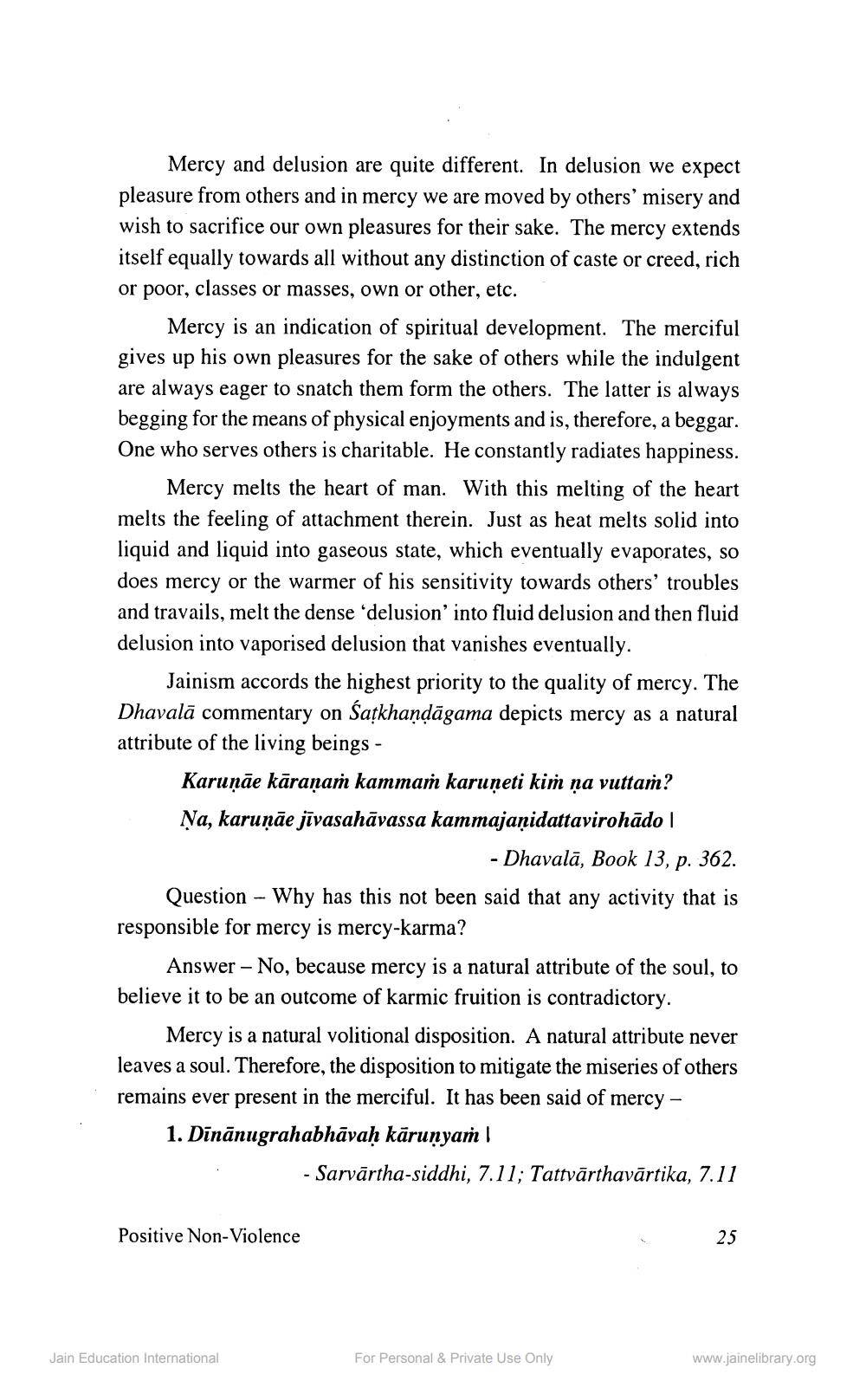________________
Mercy and delusion are quite different. In delusion we expect pleasure from others and in mercy we are moved by others' misery and wish to sacrifice our own pleasures for their sake. The mercy extends itself equally towards all without any distinction of caste or creed, rich or poor, classes or masses, own or other, etc.
Mercy is an indication of spiritual development. The merciful gives up his own pleasures for the sake of others while the indulgent are always eager to snatch them form the others. The latter is always begging for the means of physical enjoyments and is, therefore, a beggar. One who serves others is charitable. He constantly radiates happiness.
Mercy melts the heart of man. With this melting of the heart melts the feeling of attachment therein. Just as heat melts solid into liquid and liquid into gaseous state, which eventually evaporates, so does mercy or the warmer of his sensitivity towards others' troubles and travails, melt the dense 'delusion' into fluid delusion and then fluid delusion into vaporised delusion that vanishes eventually.
Jainism accords the highest priority to the quality of mercy. The Dhavalä сommentary on Satkhandāgama depicts mercy as a natural attribute of the living beings -
Karuņāe kāraṇam kammam karuņeti kis ņa vuttam? Na, karuņāe jīvasahāvassa kammajaạidattavirohādo I
- Dhavalā, Book 13, p. 362. Question - Why has this not been said that any activity that is responsible for mercy is mercy-karma?
Answer – No, because mercy is a natural attribute of the soul, to believe it to be an outcome of karmic fruition is contradictory.
Mercy is a natural volitional disposition. A natural attribute never leaves a soul. Therefore, the disposition to mitigate the miseries of others remains ever present in the merciful. It has been said of mercy -
1. Dīnānugrahabhāvaḥ kārunyam |
- Sarvārtha-siddhi, 7.11; Tattvārthavārtika, 7.11
Positive Non-Violence
25
Jain Education International
For Personal & Private Use Only
www.jainelibrary.org




